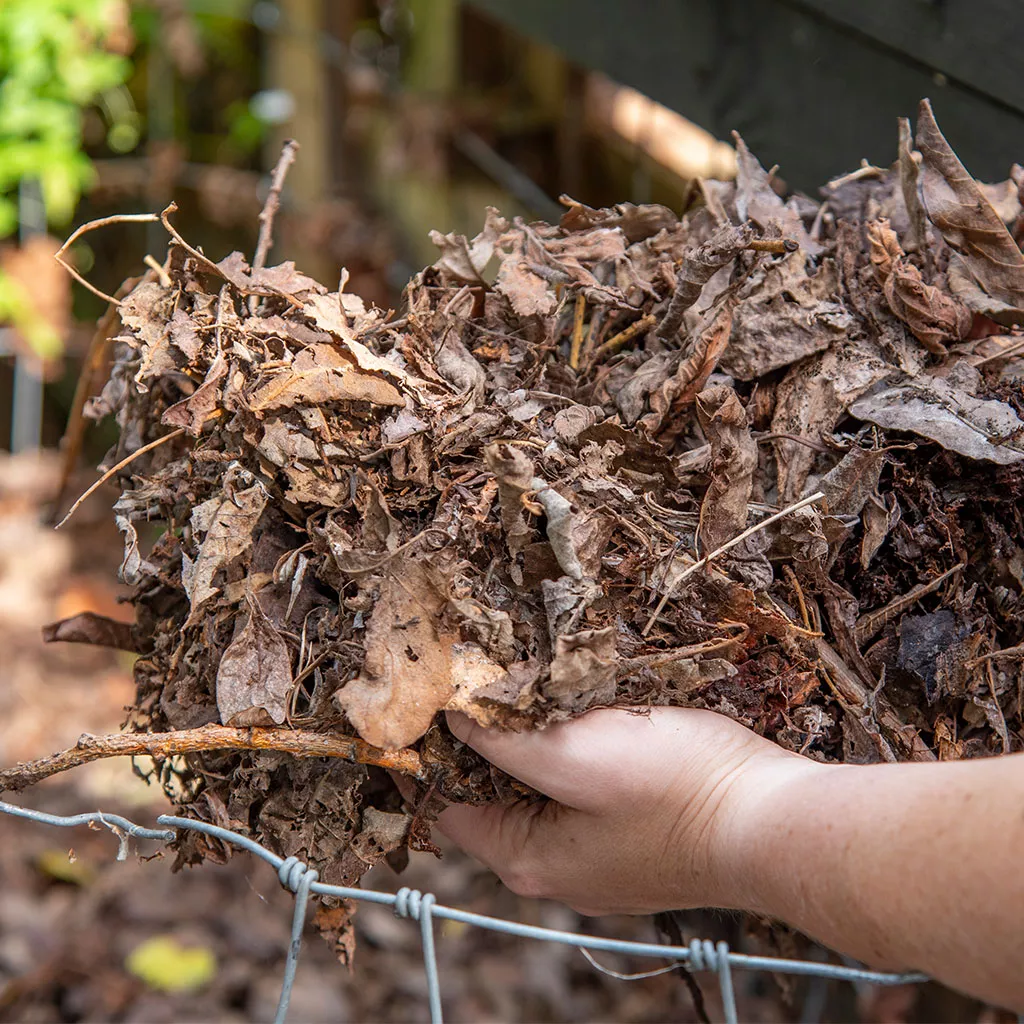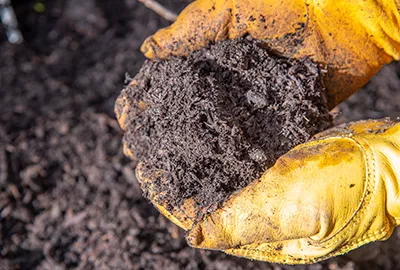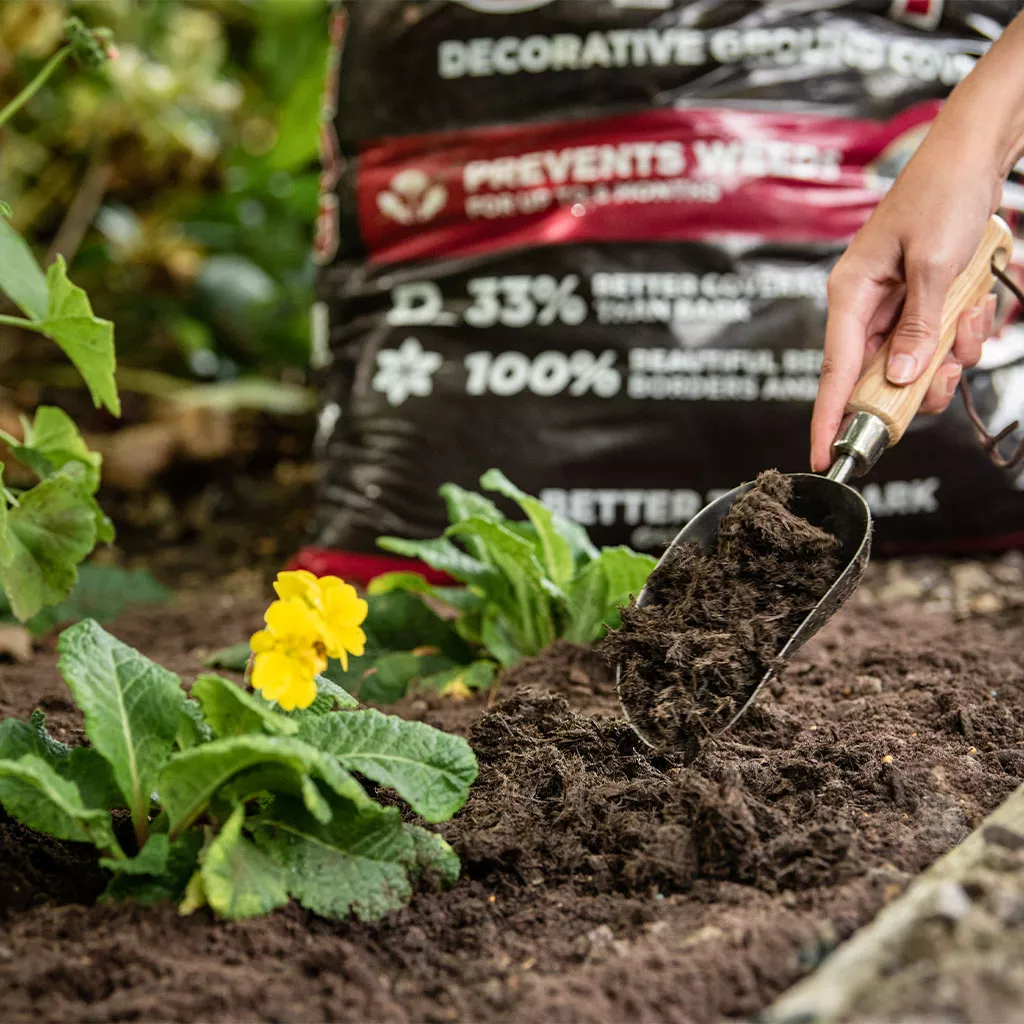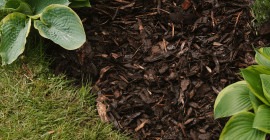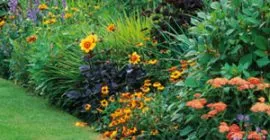Mulching is one of the simplest yet most effective ways to maintain a thriving, healthy garden. Whether you’re a seasoned gardener or a beginner, understanding the ins and outs of mulching can significantly improve soil quality, regulate moisture, and also enhance the overall appearance of your outdoor space.
What is Mulching?
Mulching is covering the surface of your soil with a loose covering/protective layer of material. This layer, known as mulch, serves various functions that help improve plant health and soil quality. You can apply mulch to borders or the tops of pots or containers.
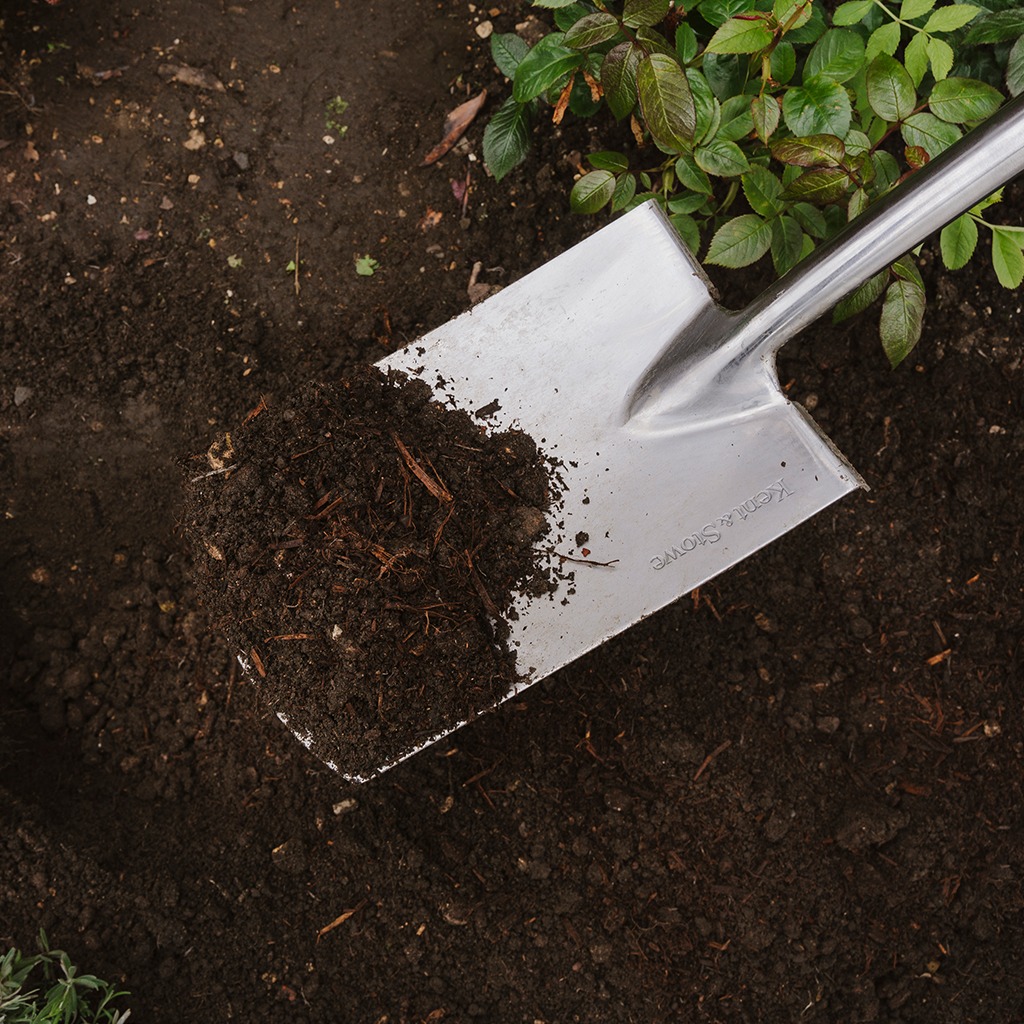
Benefits of Mulching
- Moisture Retention: Helping the soil to retain water by reducing evaporation. This means you don’t need to water as much.
- Weed Control: Suppresses weeds by adding a layer on top of the soil which starves the weeds of light.
- Temperature Regulation: Mulch insulates the soil, keeping it cooler in the summer and warmer in the winter, which helps protect plant roots from extreme temperatures.
- Soil Improvement: Improves organic matter in the soil and adds extra nutrients.
- Erosion Prevention: Mulch helps prevent soil erosion by reducing the impact of rain and wind on the soil surface.
- Aesthetic Appeal: A well-mulched garden looks neat, tidy, and professionally maintained, enhancing the overall landscape design.
Types of Mulch
Choosing the right type of mulch is essential to maximise its benefits. Mulches can be categorized into two main types: organic and inorganic.
Organic Mulches
Organic mulches are natural materials that decompose over time, enriching the soil.
- Bark Chips & Wood Shavings – Ideal for flower beds and around trees, bark chips provide long-lasting coverage and a natural look.
- Compost – Rich in nutrients, compost is perfect for vegetable gardens and flower beds.
- Grass Clippings – A readily available option for many gardeners, grass clippings are best used in thin layers.
- Straw & Hay – Often used in vegetable gardens, straw and hay help retain moisture and suppress weeds.
- Fallen Leaves – A cost-effective mulch for autumn gardens, leaves add organic matter as they decompose.
Inorganic Mulches
Inorganic mulches do not decompose and are typically used for decorative or long-term weed control purposes.
- Gravel & Pebbles – These materials are commonly used around succulents or cacti.
- Landscape Fabric – A synthetic option placed beneath other mulches to block weeds.
- Rubber Mulch – Made from recycled tires, rubber mulch is often used in playgrounds and ornamental gardens.
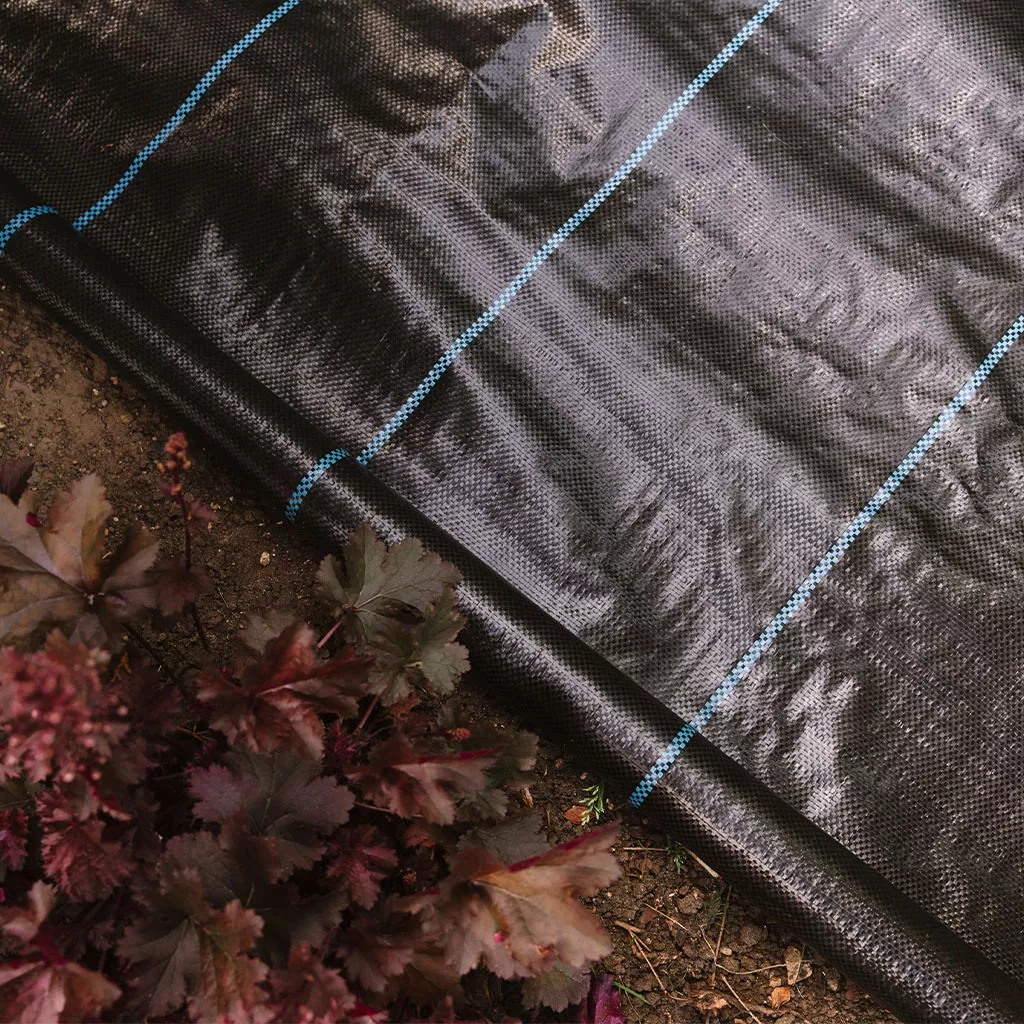
How to Apply Mulch?
Proper application of mulch is crucial to its effectiveness. Follow these steps for the best results:
1. Prepare the Soil
- Remove any weeds and debris from the area.
- Loosen the soil with a rake or hoe to improve aeration and drainage.
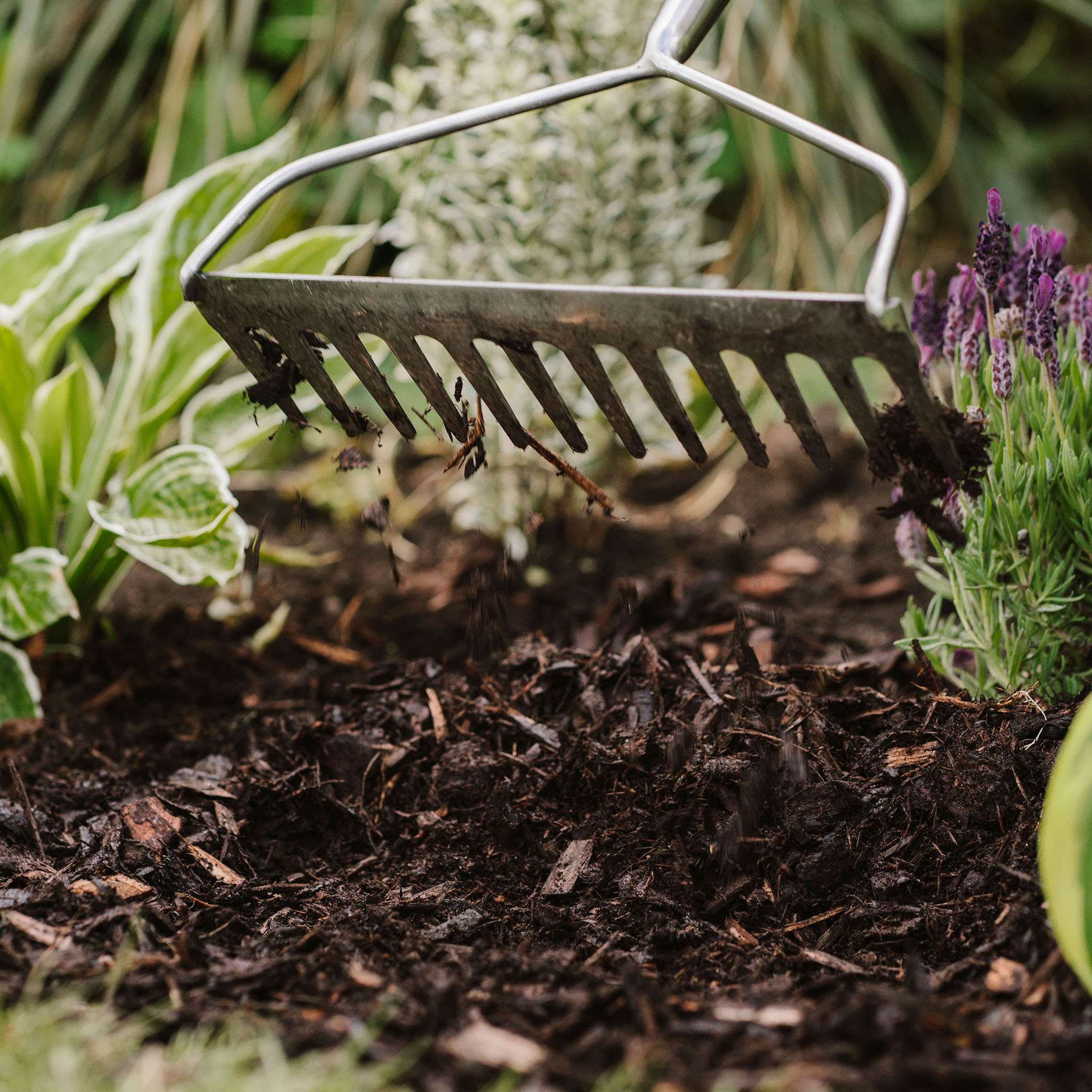
2. Apply a thick layer 3-4cm deep over the soil surface.
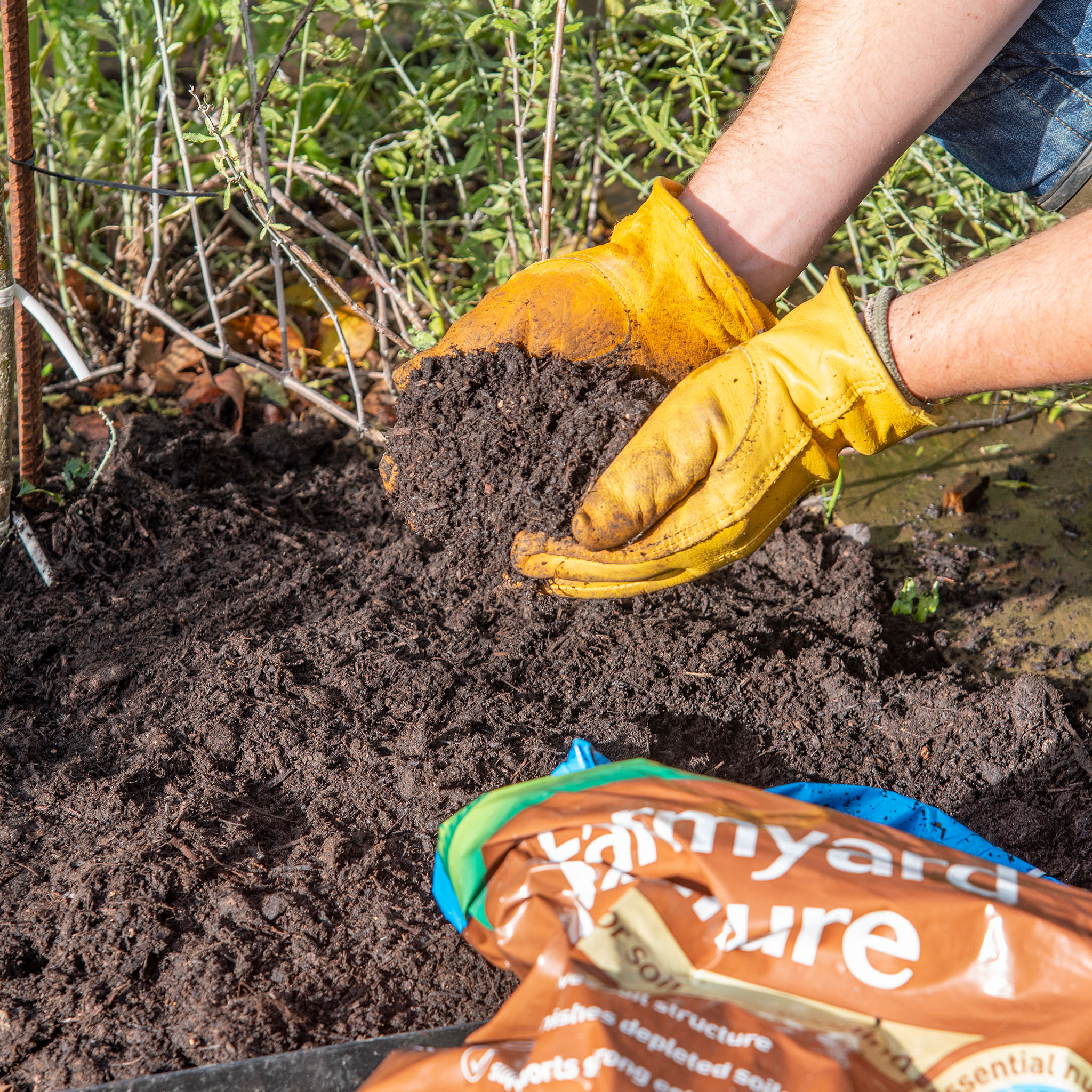
3. Spread evenly around the existing plants
Avoid piling mulch directly against the base of plants or tree trunks, as this can lead to rot and pest problems.
To improve soil structure, Use a fork to work into the top 15-20cm of the soil surface.
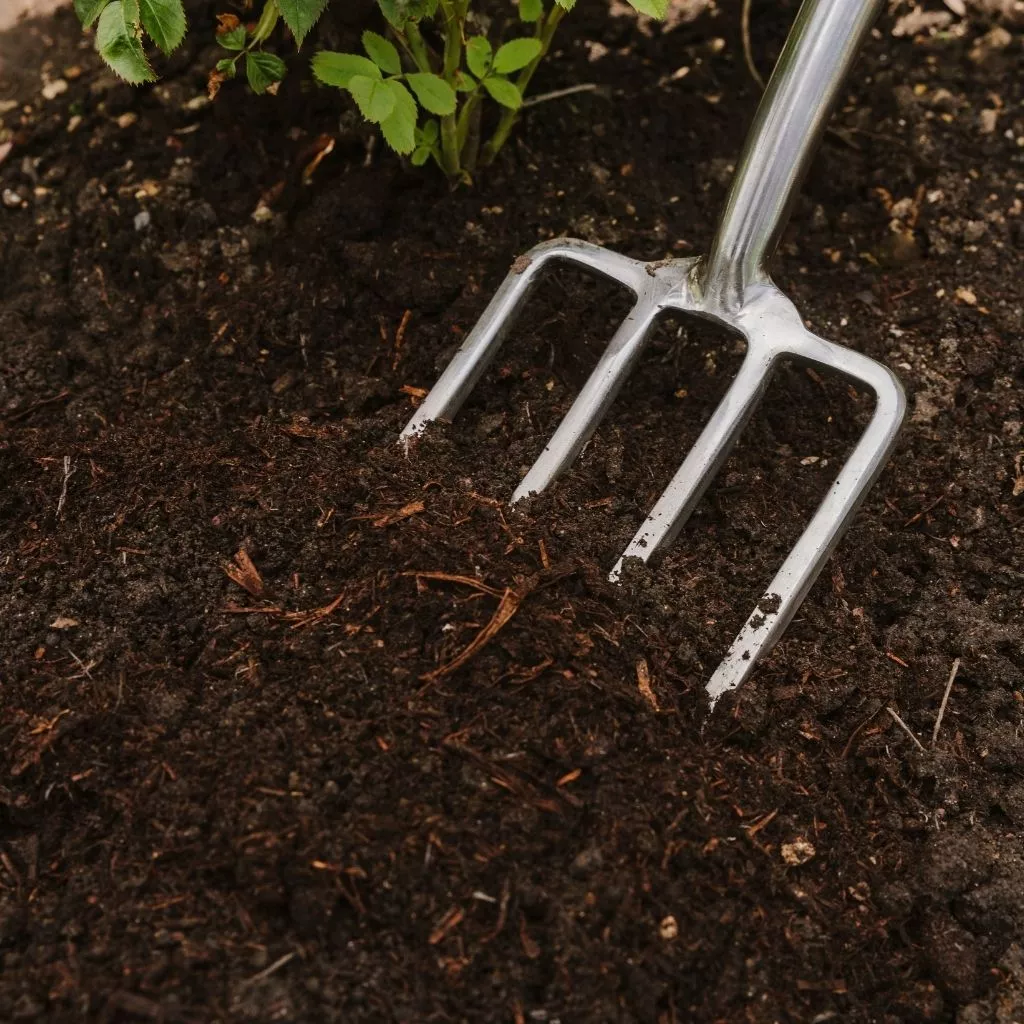
4. Replenish as Needed
Organic mulches decompose over time and should be replenished annually or as needed.
When to mulch?
Spring
- Apply a fresh layer of mulch to retain moisture and promote healthy growth.
- Use light, well-aerated mulches.
Summer
- Mulch heavily to retain moisture and reduce watering frequency.
- Bark chips or wood shavings work well for summer gardens.
Autumn
- Add a layer of mulch to protect plant roots from frost and improve soil for spring planting.
- Fallen leaves or straw are ideal for autumn mulching.
Winter
- Mulch to prevent soil erosion and insulate plants during freezing temperatures.
- Use heavier mulches like bark or wood chips for winter protection.
What to use for Mulching?
Many different types of materials can be used for mulching. Some are:
- Farmyard Manure – The perfect soil conditioner to provide the essential nutrients plants need. It breaks down naturally in the soil, releasing these nutrients, as well as a rich, natural source of organic matter and humus. Westland Farmyard Manure is perfect for mulching and incorporating during planting.
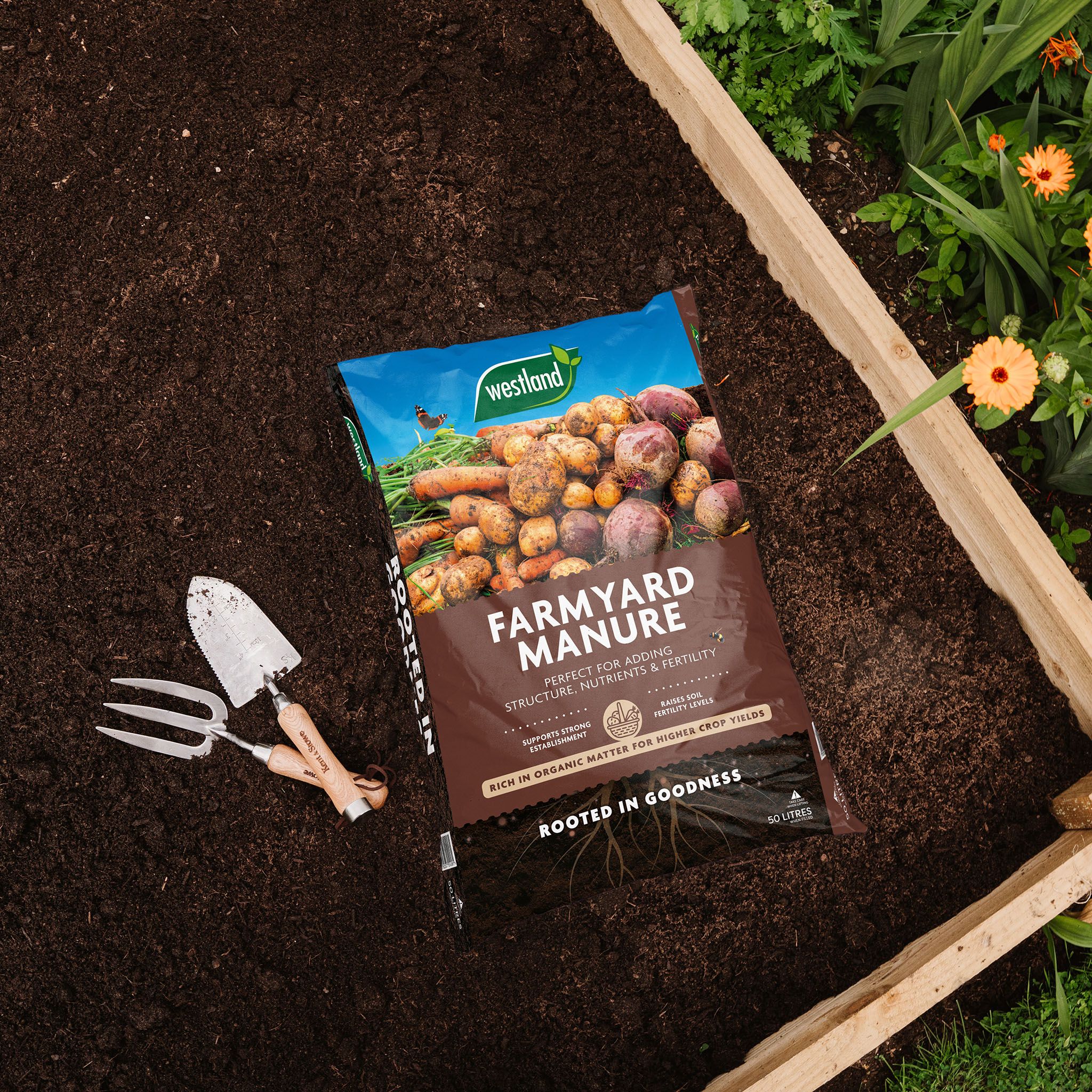
- Westland Soil Improver – Replenishes depleted soils with a blend of manure and bark to improve soil structure and fertility. The soil works naturally in 3 ways to create the best foundations for growth. This includes physical structure, chemical organic matter & pH as well as biological soil biodiversity and microbial activity.
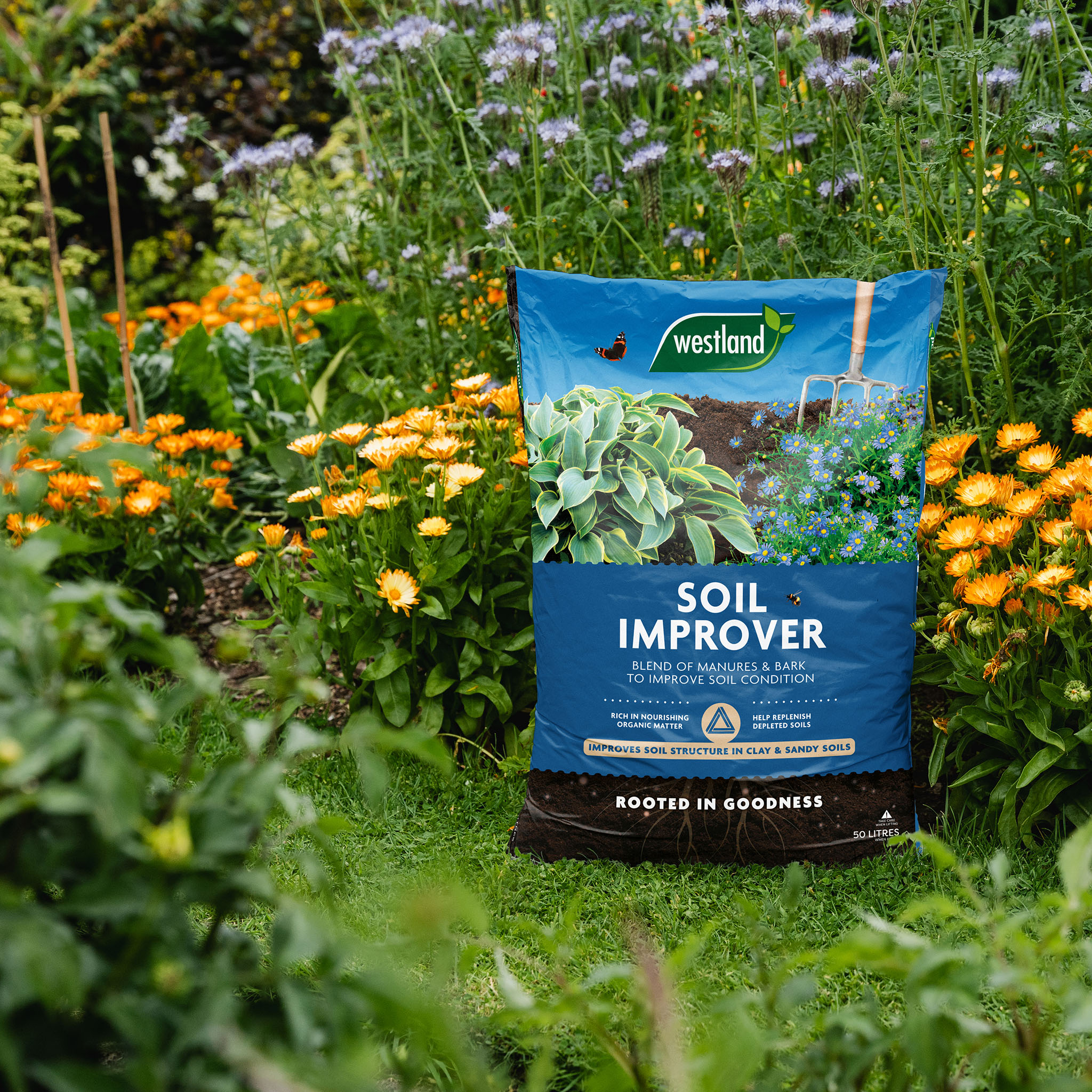
- Composted Bark – Helps to revitalise tired soils in your garden providing a rich source of composted organic matter. This bark will help improve soil structure, improve drainage, and release nutrients into the soil.

- Pine Bark Chips – Premium Pine Bark Nuggets create a luxurious warm golden carpet as wonderful and weed free as a forest floor. Sourced from sustainable pine forests and selected for a superior, chunky texture, it is long lasting and naturally weed suppressing.
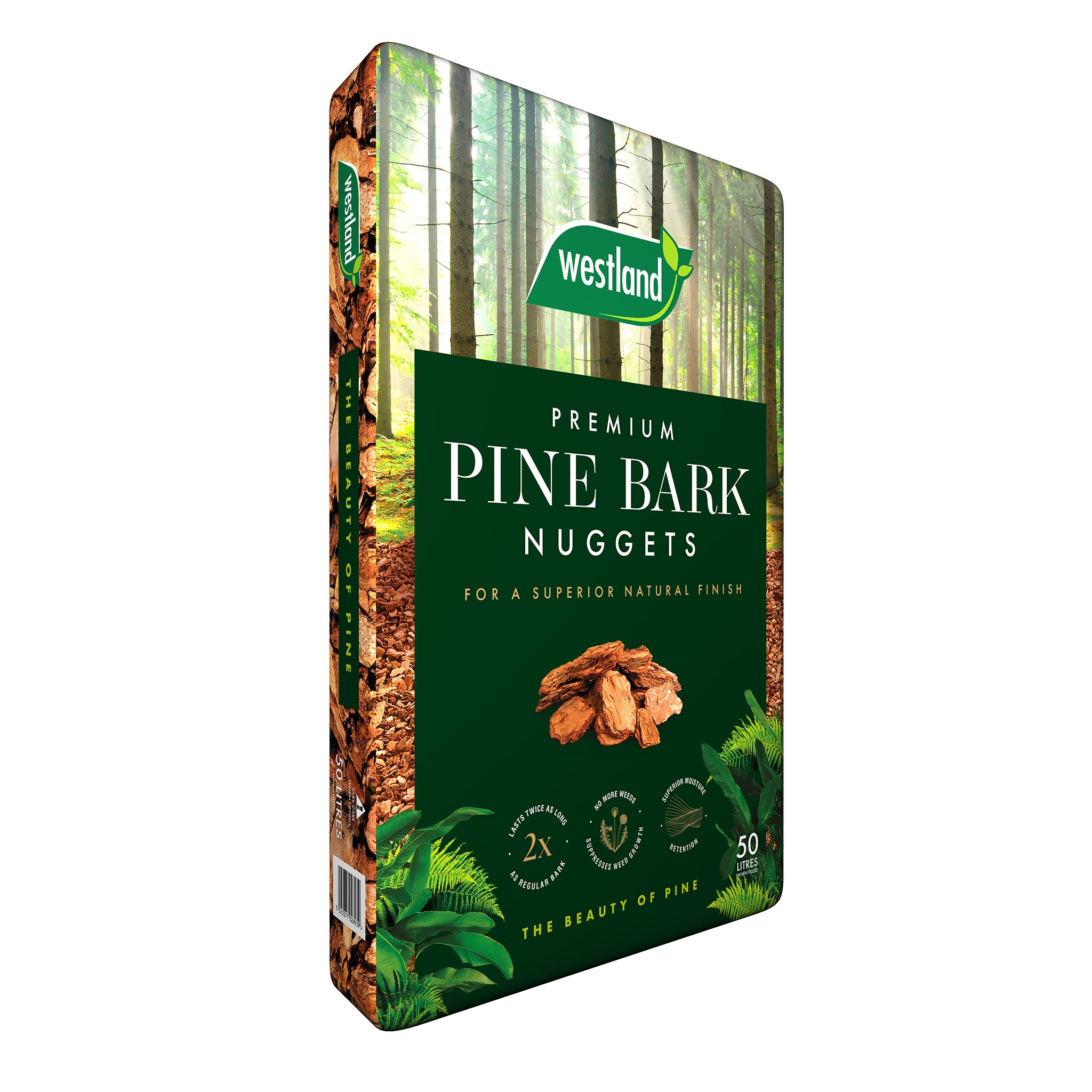
- Weed Stop Decorative Ground Cover – A 100% natural decorative ground cover that prevents weeds from growing for up to six months. It blocks the light that weed seeds need in order to germinate and impedes weed seeds and soil contact.
- Landscape Bark – Perfect for creating low-maintenance beds & borders. It reduces the need for frequent weeding and therefore the amount of time spent on weeding. You can also use it to create rustic natural-looking pathways through woodland and large borders.
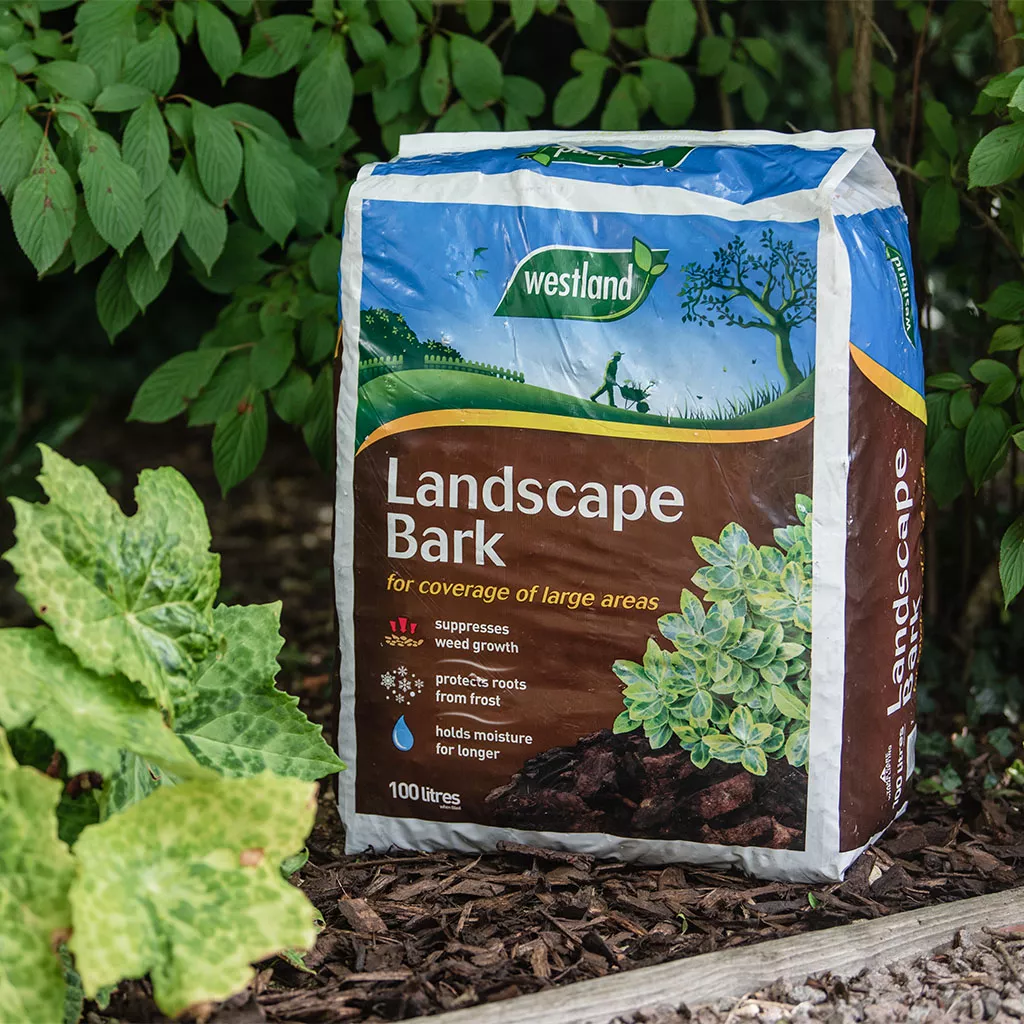
If you have made leaf mould, or your homemade compost, you can also use this for mulching!
